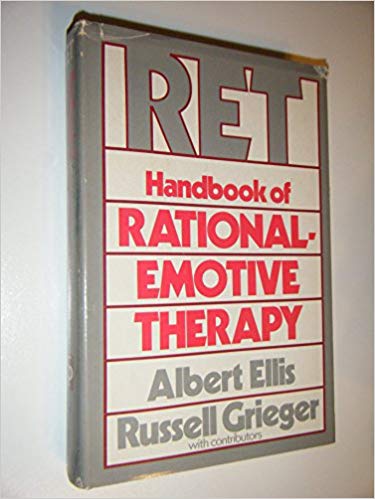Cognitive Behavioral Therapy
Yes, Cognitive Behavioral Therapy (CBT) is very different from other types of “Therapy.” There are many types of “therapy”, commonly called “counseling,” “psychotherapy,” or just “therapy.” But not all psychologically based therapies are equally effective when dealing with psychological issues – and anyone can be called a “therapist,” whether licensed or not. Typically, most “therapy” that is commonly practiced in “counseling” sessions and also portrayed in movies or on television shows is what’s known as “psychoanalytically oriented psychodynamic psychotherapy” -a real tongue twister. Before the advent of research focusing on Behavioral and Cognitive Behavioral Psychology, formal psychoanalysis or psychoanalytically oriented psychodynamic psychotherapy were the predominant modes of psychological therapy in America and around the world. That changed about 50 years ago, bt many practitioners still use psychoanalytically oriented psychodynamic psychotherapy as the foundation for their clinical psychological services.
In our opinion, and after many years of evidence-based research, Cognitive Behavioral Psychology and Cognitive Behavioral Therapy are superior methods of using psychology to help individuals of all ages resolve a wide range of psychological problems including depression, anxiety, ADHD, and PTSD, as well as other common life issues such as diet, habit change and lifestyle changes.
Irrespective of what type of therapy you decide to choose, however, make sure that any psychological therapy is done by a licensed clinician – and there are many to chose from, including Psychologists, Social Workers, Licensed Mental Health Counselors to name but a few. Choose someone who has strong academic training and deep clinical experience dealing the types of issues you are facing, because there is variability in skill levels of all professionals, including therapists, physicians, lawyers, dentists and accountants and so on.
Among the types of therapy we specialize in is Cognitive-Behavioral Therapy (CBT). That is, the therapy focuses on what individuals think – that’s the ‘cognitive’, or intellectual part – and how individuals behave. Thinking influences behavior and vice-versa. CBT is suitable for a wide variety of issues and is easily adapted to developmental and environmental needs.

A Life Span Developmental Approach
Clinical And Professional Applications Of CBT
In general, every treatment plan should be based on an evaluation of the psychological functioning on the individual BEFORE treatment begins and should include follow-up evaluations should the condition worsen or change to be sure the treatment is on the right track. Sometimes, the assessment is more formal, as with a psychological or neuropsychological assessment (you can read more about the difference between those two type of assessments under Neuropsychology) and sometimes it is more clinical. Your clinician should be able to determine when a clinical assessment is all that is necessary or when a more formal, and complex, psychological or neuropsychological exam might be indicated. But not every psychotherapist, nor even every licensed psychologist, can provide psychological assessments because only a small percentage of trained and licensed Clinical Psychologists or Neuropsychologists have the special training and experience to provide formal psychological testing. Social workers, counselors, physicians and even psychiatrists, for example, do not have this training.
Psychological assessments can be done to address a wide range of psychotherapeutic issues. In addition to psychological assessments, some clinical psychologists are also trained to provide health assessments for some medical conditions,
Below are some examples of areas where clinical and psychological or neuropsychological assessments can be very important:
• Development and attachment issues in very young children.
• Memory, attention and cognitive functions in adults and seniors.
• Assessment of personality.
• Assessment of functional behavioral disorders.
• Memory impairment due to anxiety, trauma or other issues.
• Treatment Plan Reviews and Second Opinions.
Academic And School Applications Of CBT
Play is the “work” of childhood and school is the “workplace” of childhood and young adulthood. How children make the transition from play to workplace is a vital part of socialization and maturity in the modern world. And it’s no doubt true that many youngsters never accommodate or assimilate very well to the needs of growing up and effectively functioning in an adult world. When teachers or parents or physicians suspect such a problem, it is appropriate to refer for a psychological evaluation to make sure no problem or difficulty exists in an area of functioning that prevents us from succeeding.
The results of a psychological evaluation in any of these or other areas could result in the legal requirement that a school needing to develop perhaps an Individualized Education Plan (IEP) to remediate academic problems for a particular child, or perhaps offer a different plan of remedial action under the law known as a Section 504 Plan to help a child or adolescent learn better. Evaluations of common problem areas include:
• ADHD evaluations.
• Shyness and social skills delays or disability.
• Learning Disabilities and Non-Verbal Learning Disabilities.
• Independent Evaluations for 504 and Chapter 766/Special Education.
• Second Opinions about parent-school conflicts or behavior issues.
• Independent Assessment of Developmental Disabilities, such as birth defects, Autism, PDD.
• General academic, psychological and neuropsychological exams.
• Second Opinions regarding 504 plans and Individualized Education ?Plans (IEPs)
• Functional Behavioral Assessments (FBAs) of classroom behavior.
Contact Us
Error: Contact form not found.







